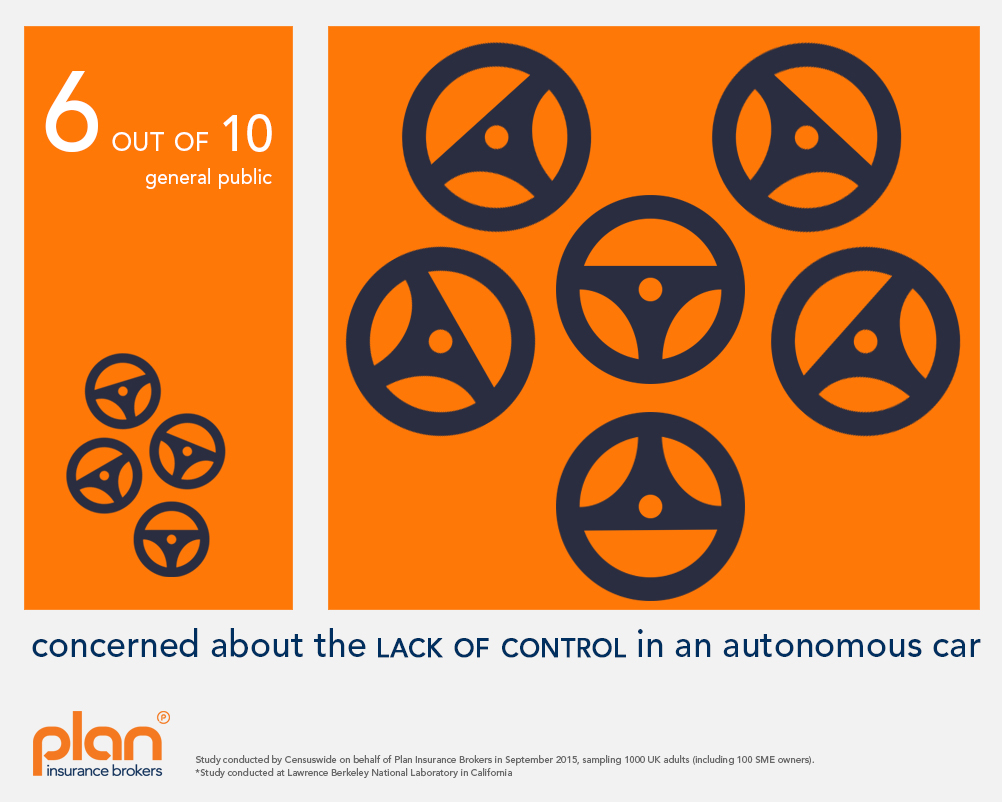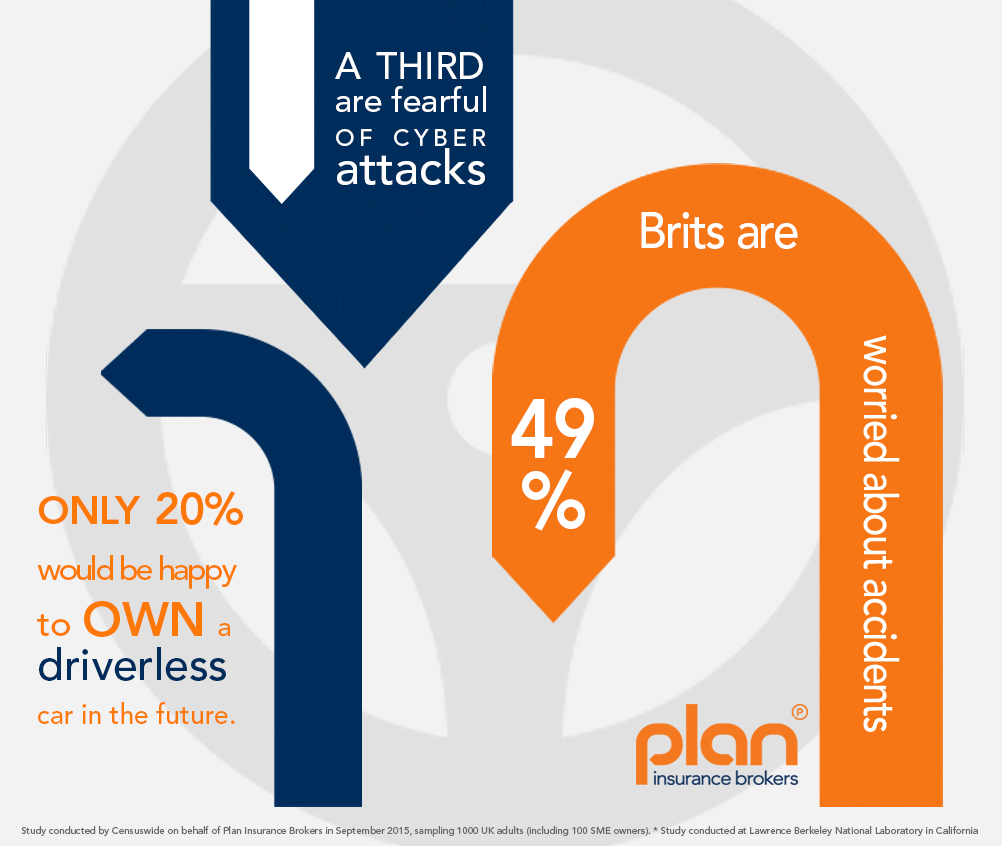The days of manually operated cars could soon be over with some driverless car releases predicted as quickly as 2019.
The might of Bosche, Faraday Future, Tesla, Toyota, KIA, Ford, Volvo, BMW and Lexus – not to mention Apple and Google – continue to drive the delivery of driverless, autonomous car tech.
Only last week at the prestigious and highly anticipated tech show of the year, CES – Blackberry, Mercedes and Maserati were also busy showing off their creations. And who else? Oh, only Microsoft!
It seems everyone wants a piece of this potential market. But what are the issues they’ll come across? We believe there are still many hurdles on the route to fully autonomous cars – the general public is just one of them. Not to mention our client base of professional HGV, chauffeur and taxi drivers who could be rendered close to redundant not long after this decade is completed if you believe the tech soothsayers.


Image source: mercedes-benz.com
NO WHEEL = NO CONTROL?
How would all our professional driver clients feel about vehicles with no driver’s wheel?
It seems hard to imagine; taxis, black cabs, lorries or delivery vans with no operators within them – but this is exactly what some speculators see as a future possibility.
Journeys made in pods with no driver’s seat. Cars fully autonomous with all the applicable safety technology and systems in place, without the need for a human body except as passengers – to judge roads and hazards and pedestrians, even 3D satellite mapping the world. Or flying in a passenger drone. If you want to get your own personal drone check out this syma x5sc review first. It has great reviews and you will love how it flies.

Image source: telegraph.co.uk
GENERAL PUBLIC SAYS . . .
Our survey undertaken recently asked SME owners if they see the future being driverless – and the result was a majority NO. This seems to go against a lot of the hype out there in the tech industry.
The long list of manufacturers investing heavily in both resources and cash shows great levels of confidence in us accepting this change – but is this confidence ill-founded? No doubt the public will adapt, yet what about all those in the logistics industry that rely on being a driver?
If computers were to eventually take over, there’s the question of the impact on the thousands of people that work in the taxi and commercial motor transportation services.
Both Ford and Google have stated 2020 as the date for when their fully autonomous cars will be on the road – but how long it will take the public to want to own and use these remains to be seen.

However, reading Car Dealer Magazine this month, James Baggott talks to KIA’s general manager for R&D Seoho Choi – and their goal is not to eliminate steering wheels entirely.
With autonomous cars, there still needs to be an element of the driver feeling like he can take control – and he needs to be able to in certain situations, so we don’t think we’ll ever develop a Kia without a steering wheel.
Could this be the solution to the transition between the general public evolving from manual drive to autonomous? Could keeping the wheel settle our worries of relinquishing control to a robo-car – knowing that the control is there for us to take when needed, or wanted.
Image source: express.co.uk
The question is; how would this correspond to professional drivers?
Would the elimination of The Knowledge, or years of chauffeur or freight travel experience in place of a computer system integrated with maps and GPS and traffic monitoring be able to function in reality? And thus, what would the need be for professional drivers at all?
We have all heard horror stories of sat navs leading drivers into lakes and rivers, or directing lorries down side-scraping ally ways or one-way streets due to insufficient information or glitches of whatever kind (I’m no tech genius).
Surely this would lead the general public into a potential nightmare where vehicles not fully comprehending their surroundings in the same way that a pair of eyes and common sense would? And this what professional drivers do best.
THE TECH IS ALREADY PARKED
Traffic jam systems and motorway driving at speed with autonomous technology is already with us, and not far off being released. Kia boldly predicts their latest system, Soul, could be with us in as little as 2 years. But what they all still have in common? They all buy Wheels Online, that keeps tech trends not that fast and scary and the production ways still the same.
Also mentioned in Car Dealer Magazine was the potential of Oxford researchers creating systems that can ‘exercise judgement’ by being able to send non-verbal signals to other drivers the way that humans can, in order to prevent collisions by communication.

Image source: telegraph.co.uk
Nvidia also made waves at CES this week, with a supercomputer that when placed in cars could mean that vehicles learn as they go along.
This supercomputer power is used to process autonomous driving algorithms, provided by a new version of Nvidia’s Digits deep learning platform, to enable driverless cars to be trained in path-finding and reacting to driving challenges such as road debris or adverse weather.
Roland Moore-Colyer v3.co.uk
This technology has already been used by Vovlo, the first car company to do so with their autonomous car, but other manufacturers are making use of the company’s smarts and are likely to adopt this new supercomputer as well.
DRIVER SAFETY FOR EVERYONE
The problem of getting autonomous cars onto the road is . . . convincing regulators that handing control of vehicles travelling at 70mph to a computer is a smart decision.
David Gilbert – ibtimes.com
Concerns are evident around the safety of these new systems; how reliable and safe they are for the reality of shared roads with humans, cyclists and pedestrians has been a worry of potential buyers.
Our study shows this clearly, with almost half of those asked worried about accidents and a further 34.9% fearful of cyber-attacks.
Last year this very thing happened. Hackers took control of a Jeep at high speed, not only turning on air con, window systems and radio, but killing the engine on a highway and making it come to a complete stop. With the ‘driver’ inside.

BUT WHO DUNNIT?
In the event of such incidents happening, how will liabilities and insurance claims be settled with this mixture of hand and hardware?
Both Volvo and Google have made claims that they will accept full liability for incidents involving their driverless cars. That is, only when their technology is at fault.
But our Operations Director Nick Cole is unconvinced that vehicle manufacturers have anticipated fully the wide ranging list of complications relating to the insurance that might prevent the autonomous car hitting the UK roads.
It shows confidence in their product and ultimately a manufacturer being held accountable is probably the simplest system for settling claims in the long term. It should be a simple case of analysing empirical data from the vehicle’s onboard computer.
However, if the tech is phased onto the UK’s roads, and the autonomous vehicles are required to integrate with vehicles operated by humans, the claim settlement might not be so clear cut.
Attributing blame will be difficult. Was it down to a human error by the 3rd party human driver? Was it a gremlin in the vehicles tech? Did the driver of the autonomous vehicle intervene? Did a non-motorist road user such as cyclist contribute?
Who will have the requisite time, knowledge and expertise to get to the bottom of that potential scenario?


